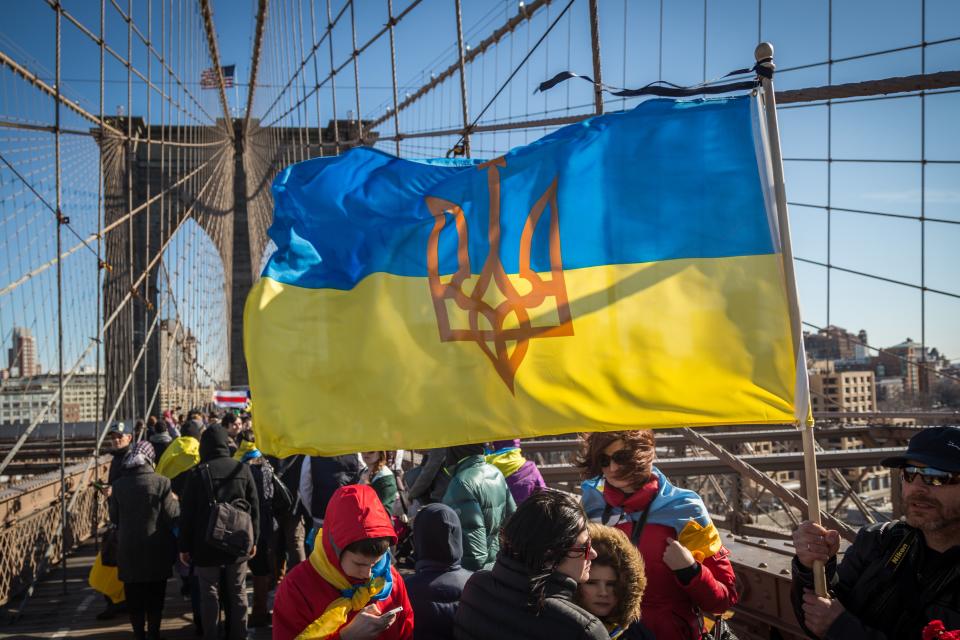Trump’s Abandoning of the Kurds in Syria Has Led to a “Total Shitstorm”
Last week, lawmakers and foreign policy experts alike roundly criticized Donald Trump's sudden decision to pull U.S. troops from northern Syria, effectively green-lighting Turkey's plan to attack American-aligned Kurdish forces in the region. Leaving, critics warned, would constitute a betrayal of an important U.S. ally and allow detained Islamic State militants to escape custody. And it might also prompt desperate Kurdish fighters to seek an alliance with Syrian dictator Bashar al-Assad.
These predictions began coming true mere hours after Trump's announcement, when Turkey launched a series of airstrikes against Kurdish positions. Dozens of Kurdish fighters and civilians have been killed since then, and the United Nations estimates that 130,000 people have fled their homes to escape the violence. Hundreds of detained family members of ISIS fighters escaped from an understaffed prison camp, and the U.S. has managed to take custody of only two of more than 2,000 suspected ISIS terrorists held in the area, according to CBS News. On Sunday, Kurdish forces indeed announced an alliance with the Iran- and Russia-backed Assad regime, opening up large swaths of northern Syria to recapture by Assad's forces. On Monday, The New York Times reported that his armies were already on the move.
The sudden instability has placed American lives in danger, too. Newsweek reported that Turkish forces have fired shells near positions long known to be held by American troops, suggesting that Turkish president Recep Tayyip Erdoğan is deliberately working to hasten their retreat. "Turkey knows all of our locations down to the precise grid coordinate," wrote Brett McGurk, former special envoy to the coalition to defeat ISIS, on Twitter. "This was not a mistake." A senior administration official described the situation to The Washington Post as "total chaos" and a "total shitstorm":
Amid reports of Islamic State militants escaping prisons in the area, a U.S. official confirmed that the American forces had been unable to carry out plans to move several dozen high-value detainees to more secure locations, as first reported by the New York Times. One official said that multiple Kurdish-run detention facilities were now unguarded and that the U.S. military believed hundreds of detainees had escaped.
Throughout this rapidly unfolding humanitarian disaster, Trump's explanation for his choice has been that defeating ISIS is his sole interest in keeping U.S. troops in Syria; beyond that, whatever happens between the various factions there is not America's problem. "The Kurds and Turkey have been fighting for many years," he tweeted on Sunday. "Others may want to come in and fight for one side or the other. Let them!"
In Washington, D.C., where lawmakers understood that abandoning the Kurds would both do significant harm to the U.S.'s reputation and allow ISIS to regain strength, the condemnation was swift and bipartisan. House Speaker Nancy Pelosi called it a "reckless, misguided decision" and a "foolish attempt to appease an authoritarian strongman." Even dependable Trump yes-man South Carolina senator Lindsey Graham referred to the Turkish invasion as a campaign of "ethnic cleansing," criticized the administration's threat of conditional sanctions on Turkey as "tepid," and called on lawmakers to pass "crippling" sanctions as soon as possible.
As the criticism of the White House grew louder, Trump's attempts to justify this move grew increasingly unmoored from reality. "Very smart not to be involved in the intense fighting along the Turkish Border, for a change," he tweeted over the weekend, ignoring the fact that he enabled such "intense fighting" to occur. "Turkey and the Kurds must not let [ISIS prisoners] escape," he warned, as if unaware that the onset of war might affect the ability of Turkish and/or Kurdish troops to act as prison guards on behalf of the U.S. On Thursday, as bombs fell in Syria, Trump began ruminating on social media about what to do next, as if hoping someone smart would tell him the right answer.
This is not the first time Trump has scrambled to deal with the easily foreseeable consequences of an ill-advised choice. Last summer, the White House announced that it would extend $12 billion in emergency aid to farmers squeezed by his trade wars, in an effort to ease the burden on the domestic economy "without backing down on Trump's trade agenda," as The Washington Post put it. After withdrawing from President Obama's nuclear agreement with Iran, which Trump mocked as "the worst deal ever," the president began expressing support earlier this year for an arrangement in which Iran would agree to shelve its nuclear weapons program in exchange for sanctions relief—which is, of course, what the Iran deal was.
On Sunday, Trump announced that he had come around to Graham's point of view and would be working with Congress to impose "powerful" economic sanctions in the days to come. But punishing Turkey for the ongoing bloodshed is only necessary because of how badly the president has already bungled the situation: Simply maintaining the status quo—keeping a U.S. military presence in the region—would have prevented the ongoing bloodshed from occurring in the first place. Once again, the president is forced to devise a costly, complicated solution to a problem he created all by himself.
Whether it’s Paul Manafort or Hunter Biden and Donald Trump, Ukraine seems to play a disproportionately popular role in our nation’s recent controversies. Julia Ioffe explains why the same small country is increasingly involved in America’s political chaos.
Originally Appeared on GQ


